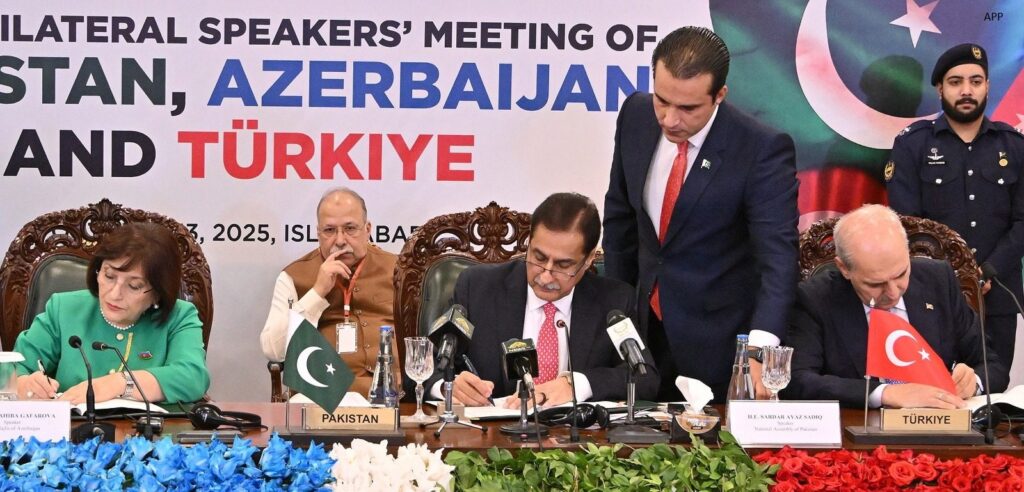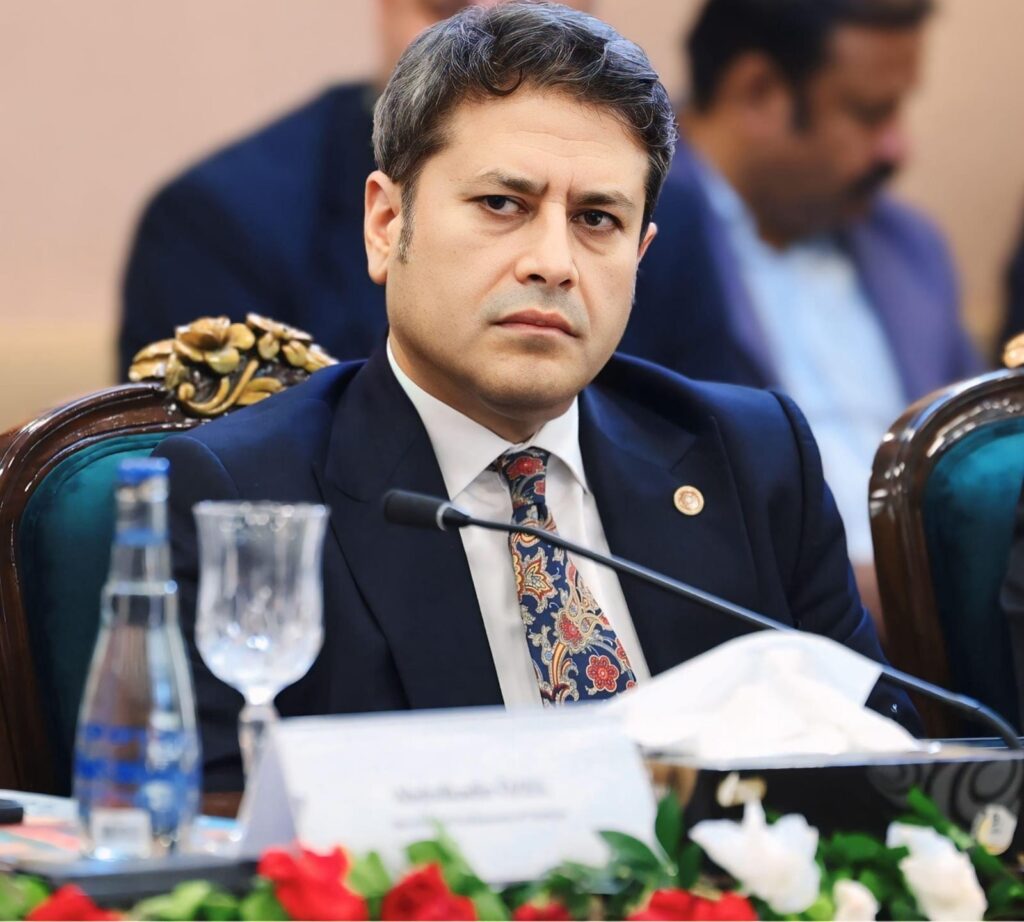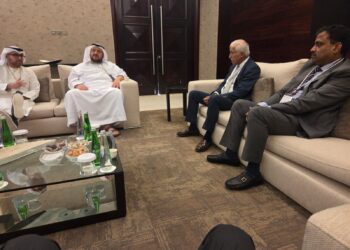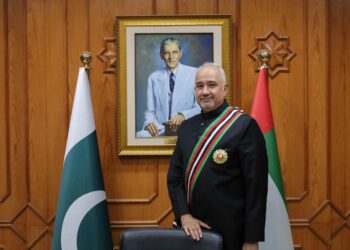
Türkiye’s call for renewed mediation between Pakistan and Afghanistan is gaining traction amid heightened regional tensions, as Ankara reasserts its role as a stabilizing force in South and Central Asia. The recent Third Trilateral Speakers’ Conference in Islamabad — bringing together parliamentary leaders from Türkiye, Pakistan, and Azerbaijan — underscored a shared commitment to “diplomacy through dialogue,” echoing Türkiye’s long-standing tradition of peace-building and regional engagement.
The meeting, held from October 12–14, 2025, came at a pivotal moment following a surge in cross-border violence between Pakistan and Afghanistan. Chaired by Speaker National Assembly Sardar Ayaz Sadiq, and attended by Türkiye’s Grand National Assembly Speaker Prof. Dr. Numan Kurtulmuş and Azerbaijan’s Milli Majlis Speaker Sahiba Gafarova, the conference culminated in the Islamabad Declaration — a framework for cooperation in trade, security, connectivity, and cultural exchange.
In a gesture that transcended formal diplomacy, Turkish parliamentarian Ali Şahin, President of the Türkiye-Pakistan Inter-Parliamentary Friendship Group, deepened people-to-people ties with a symbolic visit to Lahore’s Badshahi Mosque and Allama Iqbal’s mausoleum. His reflections — shared in a detailed post on X — laid out five proposals to strengthen Pak-Türkiye relations and stabilize Pakistan-Afghanistan dynamics through a comprehensive strategy of cultural unity, defense cooperation, and mediation revival.

Among Şahin’s key proposals were: establishing an AK Party representative office in Islamabad to strengthen parliamentary diplomacy; creating a joint drone base at Gwadar Port to safeguard maritime trade; expanding defense cooperation and counter-terrorism coordination; inviting Pakistan as an Engaged Partner in the Organization of Turkic States; and, most crucially, reviving the Ankara Trilateral Summit — a mediation platform dormant since 2021.
The proposal arrives amid escalating conflict. Following a TTP ambush in Orakzai that killed 11 Pakistani soldiers on October 8, Islamabad launched precision strikes inside Afghanistan. Kabul condemned the action as a sovereignty violation, responding with cross-border attacks that left casualties on both sides. The fallout included the closure of Torkham border, trade disruptions, and renewed debates over refugee repatriations and Durand Line tensions.
For Türkiye, this represents both a challenge and an opportunity. Ankara’s historic mediation record — from the Pashtunistan dialogues of the 1950s to its leadership of the Istanbul Process (2011) — demonstrates enduring credibility as a trusted interlocutor. The Ankara Trilateral Summit, first launched in 2007 under Abdullah Gül, could be revived as a viable platform for de-escalation, confidence-building, and long-term stabilization.

Leveraging its defense partnerships with Pakistan, including the 2025 Bayraktar drone cooperation, and its neutral stance toward the Taliban, Türkiye is well-positioned to guide backchannel talks with the support of Qatar and China. Soft-power instruments — such as joint media ventures, academic exchanges, and cultural diplomacy — could further strengthen public trust.
While challenges persist — including CPEC sensitivities, Afghan unpredictability, and India’s evolving role — Türkiye’s balanced diplomacy offers a pathway to turn confrontation into cooperation. As Speaker Kurtulmuş emphasized in Islamabad, “Fraternal solidarity and constructive dialogue remain the cornerstone of regional peace.”
A revived Ankara-led mediation effort could thus mark the beginning of a new horizon — one defined not by rivalries, but by shared prosperity and strategic stability for the wider Muslim world.






















